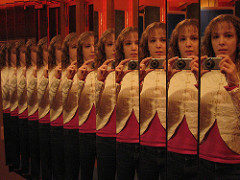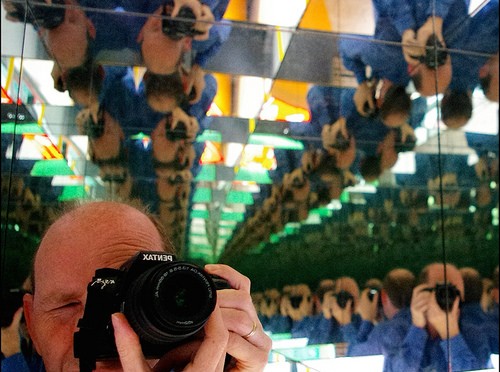The Education seminar I’m enrolled in right now is a lot of fun, but is occasionally mind-bendingly self-referential.
It’s easy enough at the surface level: we (a mix of MA and PhD students) are learning what makes teachers effective. The trick is that we’re working on this practice NOT in order to teach K-12 students, but in order to teach teachers.


We’re training to be teacher-educators, in other words. In business terms I’m in a three-month long Train-the-Trainer course—which, given my corporate business simulation and teacher-education roots feels like home—but where the ultimate end topics are K-12 math, science, and humanities.
Our focus is not just on the teaching practice, but on the analysis and coaching of the teaching practice. For a parallel, imagine an acting class where the students are themselves training to become acting coaches. The lead coach, you might say, teaches actor-teachers.
And here it wraps around itself…
But then, this is a university class, taught by an Education professor. And on any given night her seminar is a mix of rehearsals, discussions, and professor-led exercises. And we are her students. She teaches teacher-teachers.
At one point tonight I had to push back from the table, shake my head, and chuckle. Prof Savard was writing something on the blackboard during a discussion, and one of my classmates interrupted her to point out that she had just written something in an odd way.
I was watching a student, critiquing a professor, who teaches students, who are learning to teach teachers, who are learning to teach students.
Hofstadter, eat your heart out. 🙂
Photo by Machiel van Zanten

Teaching is also learning.
If you want to empower your students in their own learning, as a teacher, you have to share the power in the classroom.
Annie, it was a great classroom moment. You looked happy to have a student questioning you. 🙂